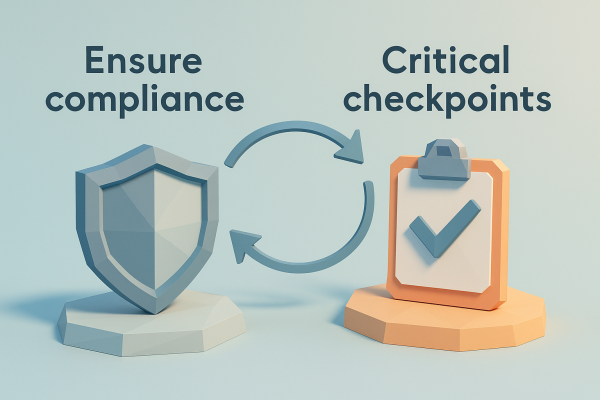
Site inspections are the cornerstone of quality assurance and safety in construction projects.
This article explains what site inspections entail, why they’re crucial for project success, and when they should be conducted as part of a comprehensive project management strategy.
What Are Site Inspections?
Site inspections are systematic assessments of construction sites to ensure compliance with safety regulations, quality standards, and project specifications. These inspections serve as critical checkpoints throughout the project lifecycle, allowing for early identification of potential issues, mitigation of risks, and maintenance of project timelines.

Why Are Site Inspections Essential?
Safety Assurance
Construction sites are inherently hazardous environments. Regular inspections help identify and address safety hazards before they result in accidents or injuries. By spotting potential dangers early, we help minimize the risk of work stoppages, delays, and rework that often follow safety incidents.
Quality Control
Site inspections ensure that materials and workmanship meet specified standards and project requirements. This focus on quality helps prevent structural problems, costly repairs, and potential safety hazards down the line.
Compliance Verification
Regular inspections verify that construction activities comply with local building codes, industry regulations, and environmental standards. Non-compliance can result in legal issues, fines, project delays, and reputation damage.
Risk Mitigation
Identifying potential problems early allows for prompt corrective action, reducing the likelihood of costly delays, disputes, and rework.

When Should Site Inspections Be Conducted?
Site inspections should occur at multiple stages throughout a project.
Pre-Construction Phase
Before breaking ground, pre-construction site inspections help evaluate the site’s suitability for the planned construction and identify any potential problems or hazards. These inspections include assessing soil stability, environmental factors, existing utilities, and other site conditions.
During Construction
Regular inspections throughout the construction process ensure ongoing compliance with safety standards, quality requirements, and project specifications. These may include daily inspections, milestone inspections, and specialized inspections for concrete, structural elements, and MEP systems.
Project Close-Out
Final inspections verify that all work has been completed according to contract requirements and is ready for handover to the client.

By integrating preparation, collaboration, and clear communication into every stage of the inspection process, our team helps ensure that construction projects are safe, compliant, and built to last. This commitment to detail and professionalism is what makes a difference on site, every time.
